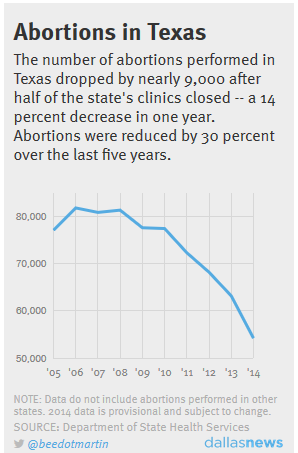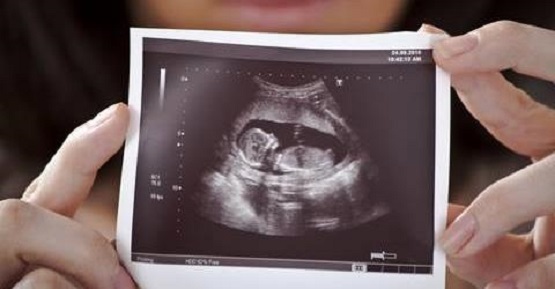A small group of abortion clinics in Texas wants the Supreme Court to overturn a pro-life law the state legislature passed to protect women’s health that has closed about half the abortion loincloths in the Lone Star State that are unable to protect women from dangerous abortions.
Earlier this month the The Supreme Court held oral arguments in the potential landmark case Whole Woman’s Health v. Hellerstedt that concerns a Texas pro-life law. The law protects women’s health and welfare by requiring abortion clinics to meet the kinds of medical and safety standards that legitimate medical centers meet.
 Abortion advocates challenged the law and those facility regulations and hospital admitting requirements, arguing that these clinics should not be held to the same health standards as other outpatient ambulatory facilities.
Abortion advocates challenged the law and those facility regulations and hospital admitting requirements, arguing that these clinics should not be held to the same health standards as other outpatient ambulatory facilities.
Now, a Dallas newspaper report indicates the law has saved 9,000 babies from abortion thanks to its effect of closing abortion clinics that are unable to protect women.
Texas women had nearly 9,000 fewer abortions in the first full year since new restrictions forced more than half of the state’s abortion clinics to close.
Provisional data recently released by the Department of State Health Services shows a 14 percent reduction in the number of abortions performed in 2014 compared with the year before.
CLICK LIKE IF YOU’RE PRO-LIFE!
Nationally, abortion rates have steadily decreased in recent years, but the drop in Texas is dramatic. The Associated Press found that abortions decreased by about 12 percent nationwide from 2010 to 2013-14. Texas abortions decreased by 30 percent in that five-year span.
Cynthia Meyer, a spokeswoman for Texas Attorney General Ken Paxton, who is defending the law in a case pending before the U.S. Supreme Court, said the national trend suggested “that demand for abortion is decreasing as a whole.”
“And that’s a positive thing,” Meyer said.
A survey by The Dallas Morning News revealed that 23 of the state’s 40 abortion clinics had stopped offering the procedure since July 2013. That’s when former Gov. Rick Perry signed a bill into law requiring all doctors who perform abortions to maintain admitting privileges at a nearby hospital and all abortions to be performed in hospital-like surgical facilities.
The sweeping law also included a ban on the procedure after 20 weeks of pregnancy and changed the rules for how doctors can prescribe abortion-inducing drugs.
The pro-life group Texas Right to Life outlined what the court will consider when it decides the case:
Today, the Supreme Court will be considering two explicit questions in the Whole Woman’s Health v. Hellerstadt case over the Texas law:
(1) Whether, when applying the “undue burden” standard of Planned Parenthood v. Casey, a court errs by refusing to consider whether and to what extent laws that restrict abortion for the stated purpose of promoting health actually serve the government’s interest in promoting health; and
(2) whether the United States Court of Appeals, Fifth Circuit erred in concluding that this standard permits Texas to enforce, in nearly all circumstances, laws that would cause a significant reduction in the availability of abortion services while failing to advance the State’s interest in promoting health – or any other valid interest.
Both of these questions deal with the “undue burden” standard from Planned Parenthood v. Casey, which has been used to challenge every type of Pro-Life legislation across the country since 1992. Whether the abortion industry is challenging informed consent laws (like Texas’ Sonogram Bill in 2011), prohibitions on late abortions (as in Arizona in 2014), or higher medical standards (as in the current challenge to House Bill 2), the plaintiffs use the vague and undefined “undue burden” standard in all cases.
The Supreme Court has not directly addressed the issue of abortion since 2007, when the Court upheld the federal Partial-Birth Abortion Ban Act in Gonzales v. Carhart.








